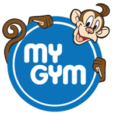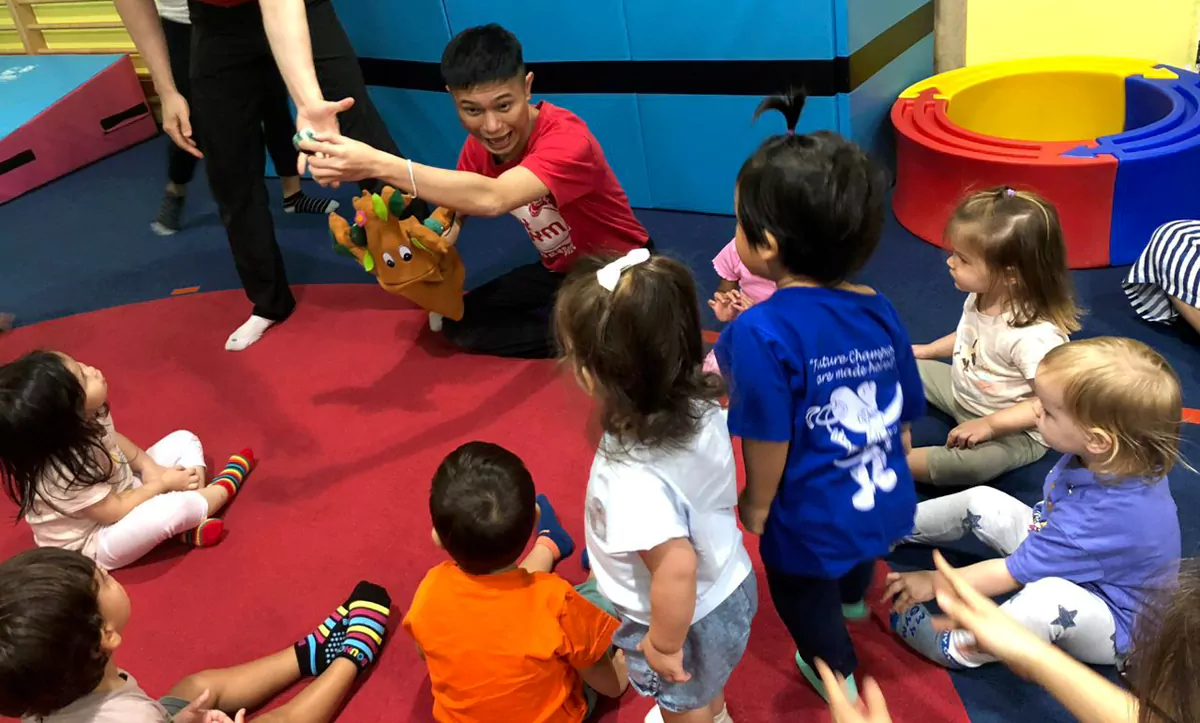How To Help Your Child Learn A New Language
Speech, language, and communication play a central role in the development and growth of your child and have a great influence on her entire life. The fundamental aspects of developing language learning in children is to help shape their ability to comprehend the surroundings they live in, enable them to articulate their needs and emotions, engage in meaningful conversations, facilitate cognitive processes, cultivate relationships, resolve challenges, and contribute positively to their overall social development.
Beyond the primary roles, developing language learning in children intricately intertwines with cognitive, social, and literacy development, establishing in the process the foundational pillars that will profoundly influence the holistic growth and well-being of young children.
Children possess an extraordinary capacity to acquire languages during their formative years. Maximizing this innate ability involves employing a range of effective strategies that can facilitate a smoother and swifter language-learning process.
Central to this endeavour is the consistent exposure of children to the language they want to learn. It is crucial to ensure that your child has regular and ample opportunities not only to hear the language she wants to learn but also to actively engage in its usage.
You need to create an environment where language learning in children is seamlessly integrated into their daily lives. Routines such as playtime, mealtime, and bedtime will provide ample opportunities for one-on-one exchanges.
The goal is to make language acquisition as natural and enjoyable part of your child’s everyday experiences as possible. By doing so, your child will effortlessly absorb the verbal nuances and patterns through repeated exposure.
Furthermore, exposing your child to multilingual learning experiences from an early age can yield significant cognitive benefits. This exposure will not only enhance her language proficiency but also foster a broader understanding of different cultures and perspectives.
You as a parent can play a pivotal role in facilitating your child to not only begin to speak but also understand a new language. She will then eagerly look forward to participating in language-learning activities, such as reading books, singing songs, and engaging in conversations. By creating and exposing your child to multilingual learning experiences, you will contribute immensely to your child’s development.
In addition to consistent exposure, incorporating multimedia resources can be highly beneficial. Educational videos, audio materials, and interactive age-appropriate language-learning apps can supplement your child’s learning experience. These resources can make language learning in children more dynamic, engaging, and enjoyable, serving as valuable companions to traditional methods.
The key to helping your child learn a language effectively lies in providing consistent exposure and creating an immersive language-rich environment. This way, you will be able to harness the innate language-learning abilities of your child. Turning her into a bilingual or even multilingual individual with a profound appreciation for diverse cultures and languages.
Why developing speech and language skills is important
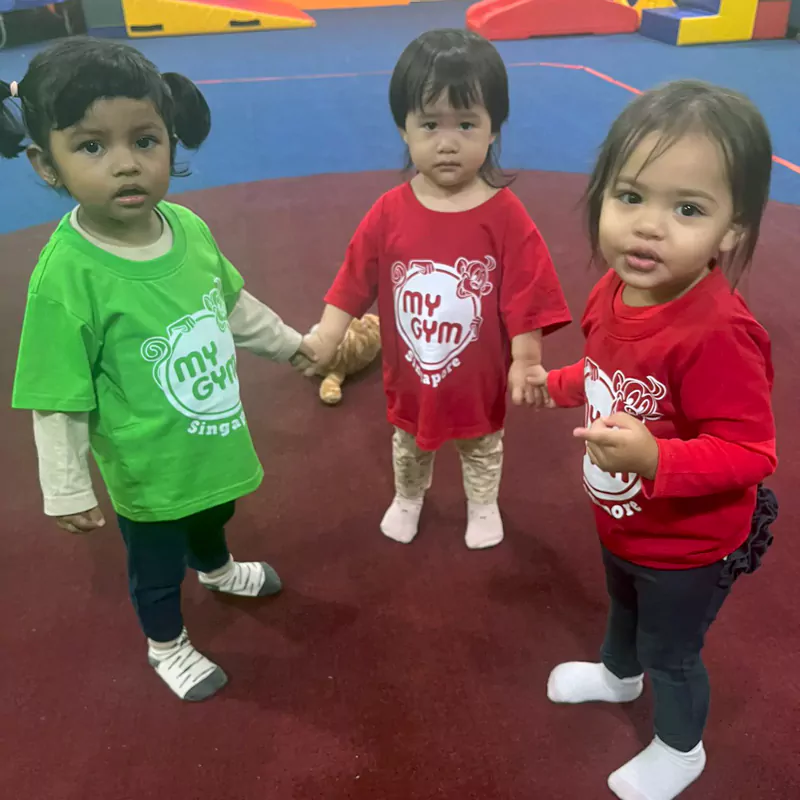
Speech and language learning in children play a pivotal role in shaping various aspects of their growth and future success. This is why, it becomes important to actively support and nurture the communication and language skills of your child, right from the time she is an infant.
Investing your time, staying committed and showing patience in developing the speech and language development of your child will ensure a strong foundation for academic success and will also help her to cultivate essential life skills that will serve your child well into her adulthood.
Laying the foundation for academic success: Mastery of language is a prerequisite for learning to read, and it serves as the primary means for the transfer of information and knowledge from teachers to students. The ability to comprehend and decode written material hinges on your child’s prior development of speech and language skills.
More your child knows, the more she will learn: Early vocabulary proficiency is a potent indicator of future educational outcomes, particularly in reading, comprehension and decoding. Research underscores the pivotal role of an expansive vocabulary in shaping your child’s academic trajectory. A limited vocabulary in the early years can lead to compromised academic performance later on.
[Source]
Central to rapid cognitive development: Language development plays a pivotal role in fostering cognitive advancement. The ability to articulate thoughts and engage in learning to express in different ways supports the overall cognitive growth of your child, enhancing her ability to think critically and solve problems.
Making social connections easier: Proficient language skills will enable your child to form meaningful connections with others. Through the use of language, she will engage in purposeful interactions, fostering the development of friendships and establishing social bonds which are crucial for her emotional well-being.
Reduce stress and improve communication: Language development empowers your child to articulate her needs effectively, thereby reducing frustration and minimizing instances of tantrums or emotional outbursts. Clear and expressive communication becomes a powerful tool in navigating her emotional landscape.
Make your child worldly-wise: Language is intricately tied to our thoughts and perceptions of the world. The ability to articulate experiences and describe the environment clearly contributes to your child’s capacity to make sense of the world around her. Describing and discussing what is happening enhances her understanding of the surroundings.
The power of multi-lingual learning for children
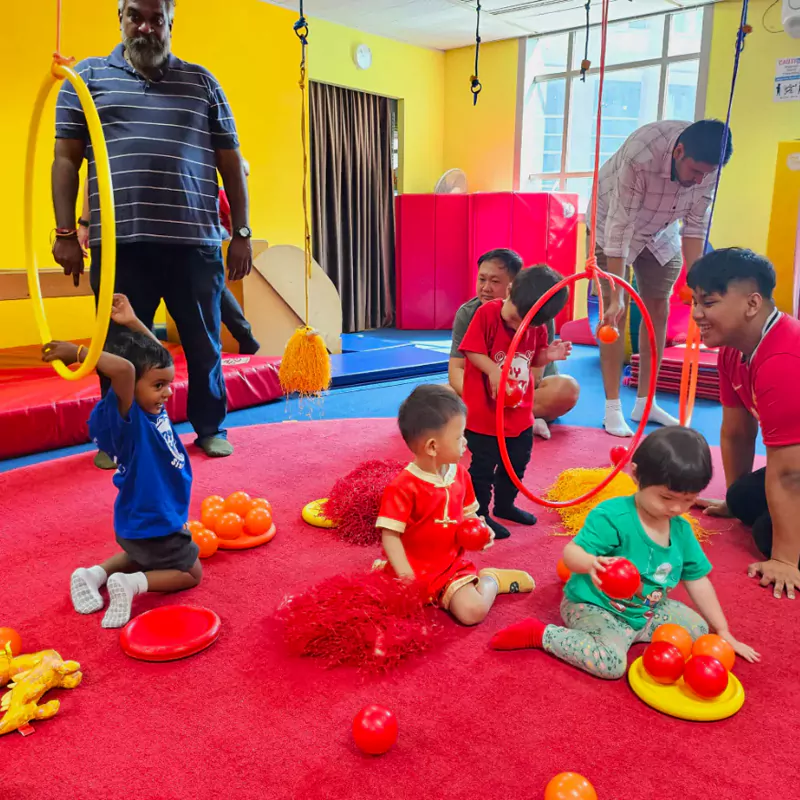
Unlocking the potential of multi-lingual learning for children is like giving them a superpower that propels them forward in life. It’s a journey that will enhance their communication skills, set the stage for exciting travels, and open doors to international career opportunities.
By speaking to your young child in multiple languages from the beginning will introduce her to the magic of becoming multilingual naturally and seamlessly. This early exposure not only makes learning additional languages a breeze later on but also provides a solid foundation for grasping new languages from scratch.
[Source]
With an older child, conscious practice daily becomes more critical. As a parent, you have the power to cultivate healthy learning habits and make sure you use it well. Regular practice, whether it’s honing writing skills, improving comprehension, or revisiting class notes, will be a passport to language mastery.
Remember, repetition boosts memory, and your child will thrive in the embrace of structured learning. As a committed parent, dedicate at least one hour every day to language practice, and watch her linguistic prowess skyrocket.
Dive into the enchanting world of children’s books, where simple yet diverse vocabulary and fundamental language structures are already there for you to follow. These literary treasures serve as the perfect launchpad for not only deeper bonding with your child but also helps in language learning.
For young children, reading in the target language becomes a magical daily ritual, strengthening their language skills effortlessly. Encourage older kids to complement their studies with active reading in a foreign language, providing access to books in both their native language and the one they are trying to master.
Transform screen time into a language-learning adventure. For your little one, switch the language settings to her favourite shows and create a delightful language experience. You can do the same for your teenager, helping her discover captivating TV sitcoms in the target language.
Regularly watching programs in a foreign language not only sharpens the ability to follow spoken dialogue but will also introduce your child to colloquialisms and slang in an engaging and contextual manner. You could also consider enrolling your child in a language course abroad.
Spending even a few weeks in a native-speaking country during school breaks can turbocharge your child’s language learning pace. Immersed in the language, and surrounded by new friends from around the world, your child will accelerate her learning and discover the real-world benefits of conversing with an international community.
Embark on this language-learning adventure with your child, transforming each day into a discovery-filled quest that not only equips her for a bright future but also adds a dash of excitement to her educational journey.
Preparing your child to excel at school
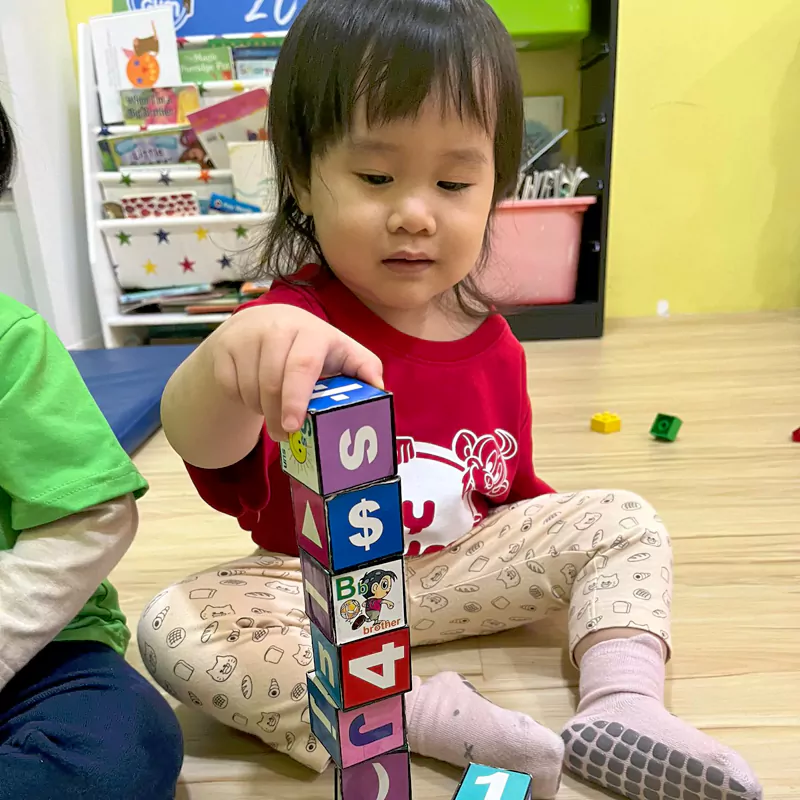
Assisting your child in excelling at school involves recognizing the many advantages that multi-lingual skills have to offer. When exposed to the richness of expressing ideas in multiple languages, your child experiences a cognitive boost that significantly enhances her thought processes. This linguistic versatility not only fosters adaptability but also shapes her into a more adept and flexible learner.
Research indicates a positive correlation between multilingualism and academic success. Multilingual children exhibit superior cognitive functions, often outperforming their monolingual peers. Beyond the obvious language proficiency, your child will develop enhanced memory retention capability, empowering her to absorb, retain, and recall information more efficiently. And this will be only the beginning.
[Source]
The cognitive advantage extends to heightened problem-solving skills. Multilingualism instils cognitive flexibility that will allow your child to approach the challenges she faces from multiple conceptual angles. This cognitive agility will prove invaluable in problem-solving scenarios, where diverse perspectives and approaches lead to more innovative and effective solutions.
The holistic impact of multilingualism on your child’s academic journey will transcend the immediate cognitive benefits. Your child will become sensitive and will often end up developing a heightened awareness of cultural diversity, and a lifelong love of learning that makes gaining a broader worldview possible. This broader cultural awareness will not only enrich her interpersonal skills but also contribute to a more inclusive and global perspective, an essential attribute in an increasingly interconnected world.
Turn language learning into a family affair
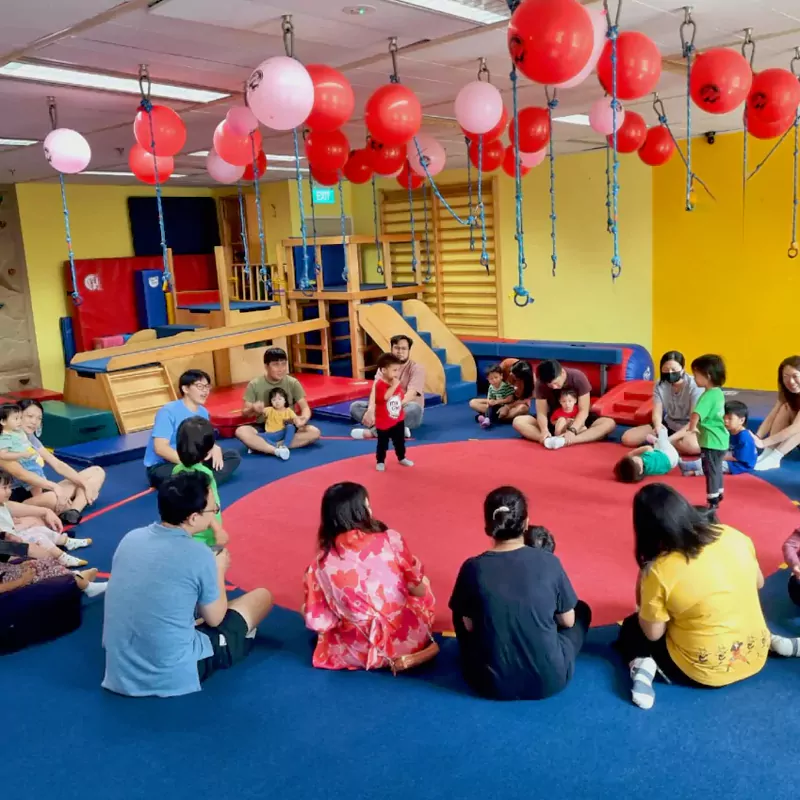
Discovering the wonders of learning a new language can be an exciting and beneficial journey for the entire family. Recent research not only highlights the positive impact on a child’s brain development but also dispels the notion that adults find language learning a daunting task.
What may come as a surprise is, that adults can also reap substantial rewards by embracing language learning. Contrary to previous beliefs, recent studies indicate that it’s not as challenging for adults to acquire a new language as once thought. This revelation opens up a world of possibilities for parents to embark on a linguistic adventure along with their children.
[Source]
For children and adults, deciding to learn a new language sparks a fascinating process in the brain. It rearranges neural connections, making it easier for everyone to concentrate, resist distractions, switch between tasks seamlessly, and helps children excel in academic endeavours.
Turning language learning into a family affair is not only effective but also remarkably convenient. The key lies in leveraging the natural communication that already exists within the family. By simply switching to the new language at home, you can create an environment where everyone becomes a conversation partner. The beauty of this approach is that it requires no formal classroom setting.
In essence, the family unit automatically becomes a dynamic and supportive space for language exploration and learning. The constant communication within the family becomes a seamless opportunity for practising a new language. Whether it’s sharing daily experiences, discussing plans, or engaging in simple conversations, the whole family environment turns into a rich and interactive language-learning playground.
So relish the fact that you as parents are not only fostering brain development in your children but also enhancing cognitive abilities for everyone involved. The journey becomes a shared experience, weaving the fabric of language into the tapestry of your family life — one new word at a time!
How My Gym can help
One effective way to help young children grow up to become positive human beings is by involving them in physical activities that involve the development of language skills and all-round development.
By motivating and involving children to perform dynamic physical movements individually and in groups, you create a safe setting where children can learn new words and phrases, concentrate on forming sentences and be attentive. Learn to listen to instructions, and pay attention to what a teacher is telling them to do.
By doing this day in and day out, children acquire critical language skills that play a big role in acquiring critical social and communication skills, enabling them to navigate complex social situations and nurture emotional development to lead healthier lives.
My Gym’s enrichment programs augment the growth of neural networks in the brain and lay a firm foundation for personal, academic and future growth by involving children in age-appropriate, structured and unstructured play designed to develop language, listening, thinking and problem-solving skills.
Please visit any of My Gym centres to learn more about how it can support “whole-child development”. Choose a day when you are relatively free and come over with your child in tow. Your child could be an infant (as young as 6 months), a toddler or a preschooler, age is not a bar to learn how your child can pick up skills just by looking, listening and imitating. without missing out on anything!
Please note: My Gym classrooms are thoroughly sanitized every day — the tables, the chairs, the children’s activity stations and everything else the child might touch is made safe and clean. Whenever required, children are encouraged to wear a mask, wash their hands frequently, and practice social distancing as well.

